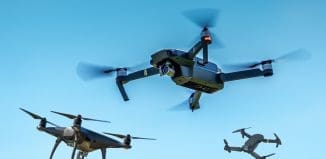Egozi: The Cyber Attack – It’s Only the Beginning
This post is also available in:  עברית (Hebrew)
עברית (Hebrew)
By Arie Egozi
This time the cyber attack was used for extortion. But it may go further, much further and cause huge catastrophes.
Hackers exploiting malicious software stolen from the National Security Agency executed damaging cyber attacks on Friday, May 12th, that hit dozens of countries worldwide, forcing Britain’s public health system to send patients away, freezing computers at Russia’s Interior Ministry and wreaking havoc on tens of thousands of computers elsewhere.
The attacks amounted to an audacious global blackmail attempt spread by the internet and underscored the vulnerabilities of the digital age.
Transmitted via email, the malicious software locked British hospitals out of their computer systems and demanded a ransom before users could be let back in — with a threat that data would be destroyed if the demands were not met.
By late Friday the attacks had spread to more than 74 countries, according to security firms tracking the spread. Kaspersky Lab, a Russian cybersecurity firm, said Russia was the worst-hit, followed by Ukraine, India and Taiwan. Reports of attacks also came from Latin America and Africa.
This is the newest type of warfare. Many still do not realize the harm it can cause and the bloodshed it may bring.
In this war, not a single shot is fired.
It’s almost the perfect paradox. While countries develop very deadly weapons, some non-conventional, some of these countries also develop silent agents, deception tools that at the end of the day may result in leaving the triggers unsqueezed. But still, this war can shut down electricity in big parts of a country, disrupt air traffic and in the worst scenario cause the loss of lives.
It seems that the allegations about foreign interference in some election campaigns were just the rehearsal. Now the extortion. What’s next?
It started before when the so-called “Iran nuclear agreement” was signed.
Press reports claimed that Israel has managed to slow down the Iranian race to the bomb, by using a “worm” type computer virus that caused havoc in the Iranian centrifuge facilities that are working to produce the needed uranium for a nuclear weapon.
Israel has not reacted to the stories that claimed who was behind that cyber attack, but the Iranians had to confirm that the “worm” was very effective in slowing down their nuclear program.
The press reports about cyber attacks, even if some are blown out of proportion, are the best indication of the “parallel war” fought in the dark and far from any defined war zone.
While Israel is continuing to purchase and manufacture the most advanced weapon systems, experts in the new type of warfare are looking for the next hole in the shield. This is a war between minds, between “wild” concepts that are based on long experience but also on the fact that the most advanced national facilities of every country rely on computers. The firewalls are there but the new warriors look for the smallest crack, and to believe a recent report, they find it.
- To avoid contracting viruses or malware on your computer: Avoid clicking on links or downloading attachments from emails you do not recognize.
- Have pop-ups adverts blocked.
- Use long passwords and double authentication.
- Ensure you have the proper updates and security software downloaded on your computer.
- Microsoft update from March 2017 could protect users with Windows 7, 8, 8.1 and 10 systems from the specific WannaCry ransomware attack.
- Ensure you have the most up-to-date security and antivirus software installed on your computer.
Can cyber attacks win a war? Can these attacks become a substitute to real weapon systems? Talking with the experts you get a somewhat contradicting picture – while some say that this is the shape of wars to come, others say that this is only a complementary asset.
But one thing is obvious – the highest is the importance of the designated target, the bigger is the effort put into the “cyber weapons”.
The dilemma about cyber wars has a great resemblance to the one concerning UAV’s. Should an airforce invest in more manned platforms or instead channel the limited budgets to additional more sophisticated UAV’s? The two dilemmas will be in the air for years to come because there is no general, not to mention a politician, that can or actually wants to make the decision.
Up to this morning, Israel was not affected by the “Black Friday” attack.
Can we rest assured that this is a sign for the future, the very near one?
No, we can’t. And it shows that a country like Israel with so many enemies, some with huge resources, must do everything to be ready.

i-HLS Editor-in-Chief





























